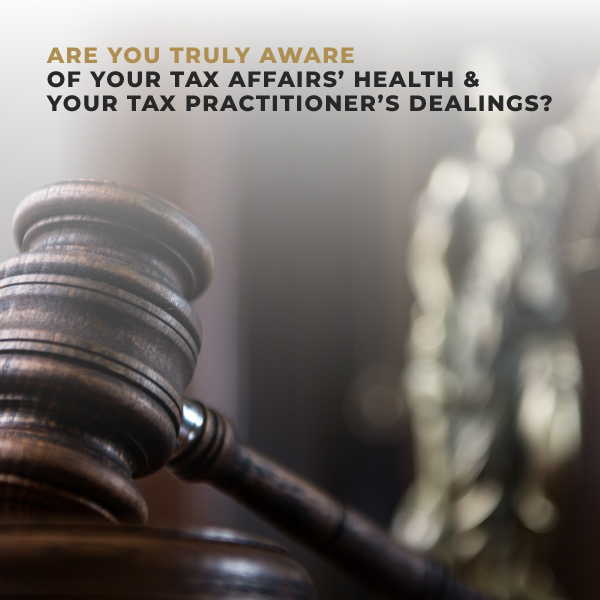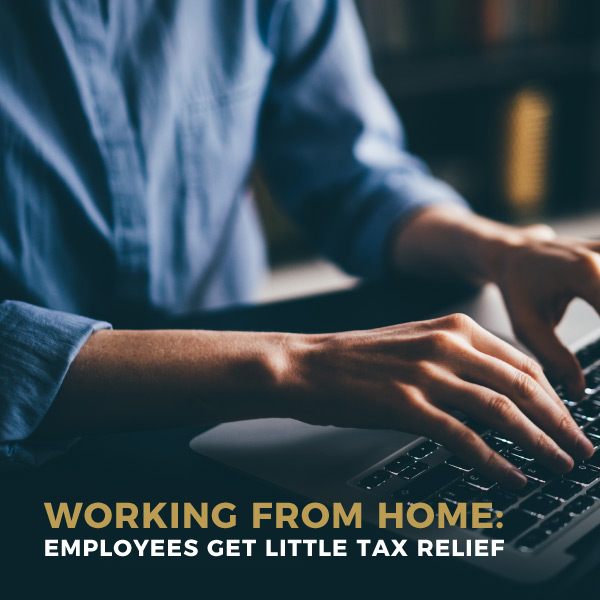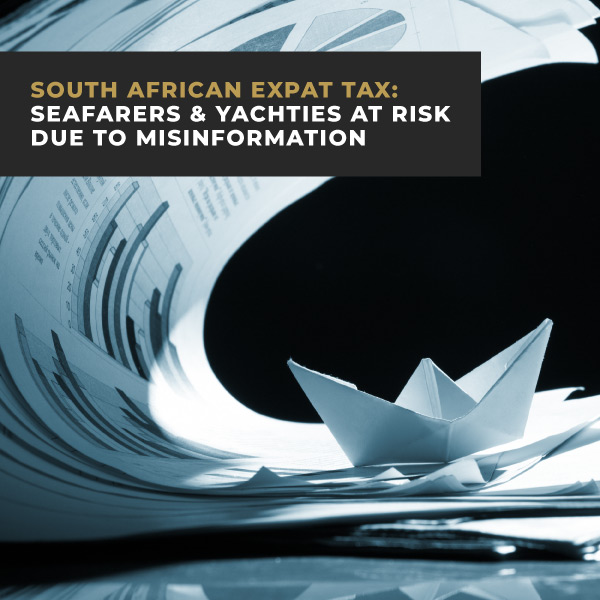ARE YOU TRULY AWARE OF YOUR TAX AFFAIRS’ HEALTH AND YOUR TAX PRACTITIONER’S DEALINGS?
The slowdown in business activities due to the outbreak of COVID-19 may offer a golden opportunity for most companies and individuals to review their tax affairs and to determine what their tax practitioners has done.
In the normal rush of getting things done, most of us make use of an accountant, auditor or tax practitioner and trusting them to keep our tax affairs in order, says Jean-Louis Nel, tax attorney at Tax Consulting SA. Therefore, most tax practitioners hold their client’s e-filing profile as this ensures administrative ease and that all SARS notices and other deadlines are informed to the tax practitioner, who is then contractually and under professional rules obligated to fulfil their mandate.
More often than not, we accept that our tax affairs are being attend to with the necessary level of competence and care, but what if this was not the case and your tax affairs are not what it should be?
It is important to ask yourself the following to determine if you are indeed conscious of your tax affairs:
- Have I reviewed my e-filing profile in the past few months and noted that all my returns are filed and up to date?
- Has my tax practitioner given me a detailed report on my tax affairs together with substantiating documents, if not, why has this not been done?
- Can I with certainty state that my tax practitioner has always acted in my best interest?
It is critically important that a tax attorney conduct a tax diagnostic of your tax affairs while ensuring that your interests are protected under legal privilege, especially in instances of non-compliance.
How a tax diagnostic can help you
Nel suggests that taxpayers make use of the opportunity to get a “fresh pair of eyes” on their tax affairs to determine whether your tax practitioner has acted in your best interest and has not been professionally negligent with your tax affairs. Tax Consulting SA can request to review a taxpayer’s e-filing profile. “We can conduct a tax diagnostic and then transfer the e- filing profile back to your tax practitioner once the health check is complete.”
The tax diagnostic is similar to being admitted to hospital where your blood pressure, heart rate and temperature is measured to determine your health status. It is important to have someone with the necessary skills and knowledge to review your e-filing profile and conduct a tax diagnostic exercise to determine any non-compliance, says Nel.
Ignorance on the side of the taxpayer is not a recognisable defence. If your tax practitioner has been negligent in dealing with your affairs and you have suffered damage because of it, it is important to hold them to account as the taxpayer will still remain responsible for the outstanding taxes due to SARS.
SARS has extensive powers in terms of the Tax Administration Act (TAA), making it crucial to ensure a good tax standing. These powers include using the banks as collecting agents on outstanding debt, or enforcing the “pay-now-argue-later” provisions when there is a tax dispute.
Your responsibility
“Your tax liability to SARS remains your responsibility and it is not going to go away because of the negligence of your tax practitioner,” warns Nel.
When a taxpayer has missed the opportunity to exercise their remedies in terms of the TAA there is little they can do to reduce a tax liability that should not have arose in the first place.
Nel says the taxpayer’s relationship with his tax practitioner, accountant or auditor needs continuous nurturing. Just as you visit your doctor for routine check-ups on your health, you should do the same with your tax health.
“We are quick to keep our doctors to a very high standard and are as quick to go to court when they make a mistake or prescribe the wrong medicine. We should keep our tax practitioners to the same high standard.”
![2025-logo-[Recovered] Tax Consulting South Africa](https://www.taxconsulting.co.za/wp-content/uploads/2025/01/2025-logo-Recovered.png)


